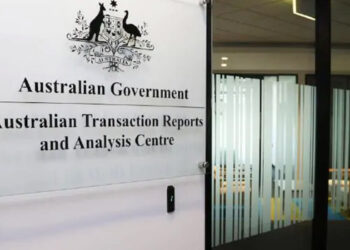New data from the Australian Bureau of Statistics has revealed an increase of 5.8 per cent in total household wealth in the June quarter to a fresh record high of $13,433.7 billion, with wealth per capita climbing to $522,032.
Booming residential property prices were the chief driver of these record figures, with property assets accounting for two-thirds of total wealth ($8.94 trillion), while $3.56 trillion sat in superannuation and $1.18 trillion was held in shares, less than the $1.34 trillion held in cash deposits.
Although Aussies are now wealthier than ever, Russel Chesler, head of investments and capital markets at VanEck, drew attention to the fragility of that wealth.
Namely, what the statistics show is that Australians are stockpiling their wealth in property, exposing their risk to higher interest rates.
“Around two-thirds of household wealth is now held in bricks and mortar, compared to just 9 per cent for direct shareholdings, a proportion which has diminished in recent times as property values have surged,” Mr Chesler said.
“The time is well overdue for Australian households to address this imbalance and lower their exposure to the property market and the risk of prices correcting from current record levels when interest rates rise.”
Flagging the likelihood of higher interest rates as economic activity picks up in 2022, Mr Chesler alerted to the probability of an impending dent in the value of property assets and increased mortgage burdens.
“In contrast, the share market could continue to gain as the Australian and global economies recover from COVID-19. Many equities will remain resilient to higher interest rates and may even benefit, like the banks. In addition to potentially creating wealth, there are other factors which favour shares over property as more accessible investments,” he said.
“Shares do not attract a huge stamp duty slug or require a deposit. You can invest much smaller amounts of money, unlike the property market.”
Further data from the ABS revealed an unprecedented $341.8 billion increase in the deposit assets of banks with the Reserve Bank of Australia (RBA), as the RBA injected further liquidity into the financial system in line with current monetary policy goals. The liquidity is said to have helped the quarterly growth of $26.0 billion (1 per cent) in banks loan assets.
“Growth in owner occupier loan balances was the strongest in five years and consistent with ABS seasonally adjusted owner occupied loan commitments data, which reached new highs over the first six months of 2021,” head of finance and wealth at ABS, Katherine Keenan said.







